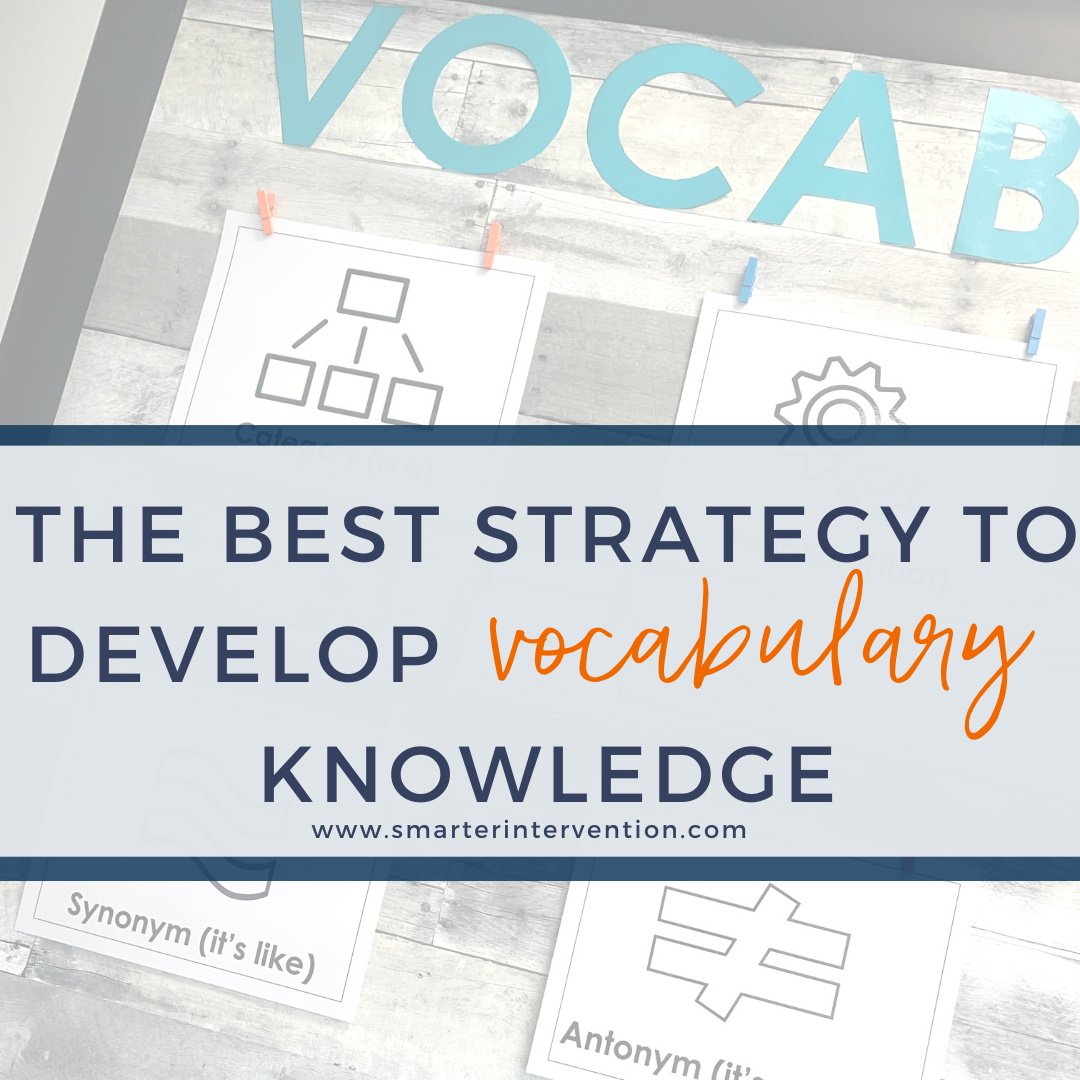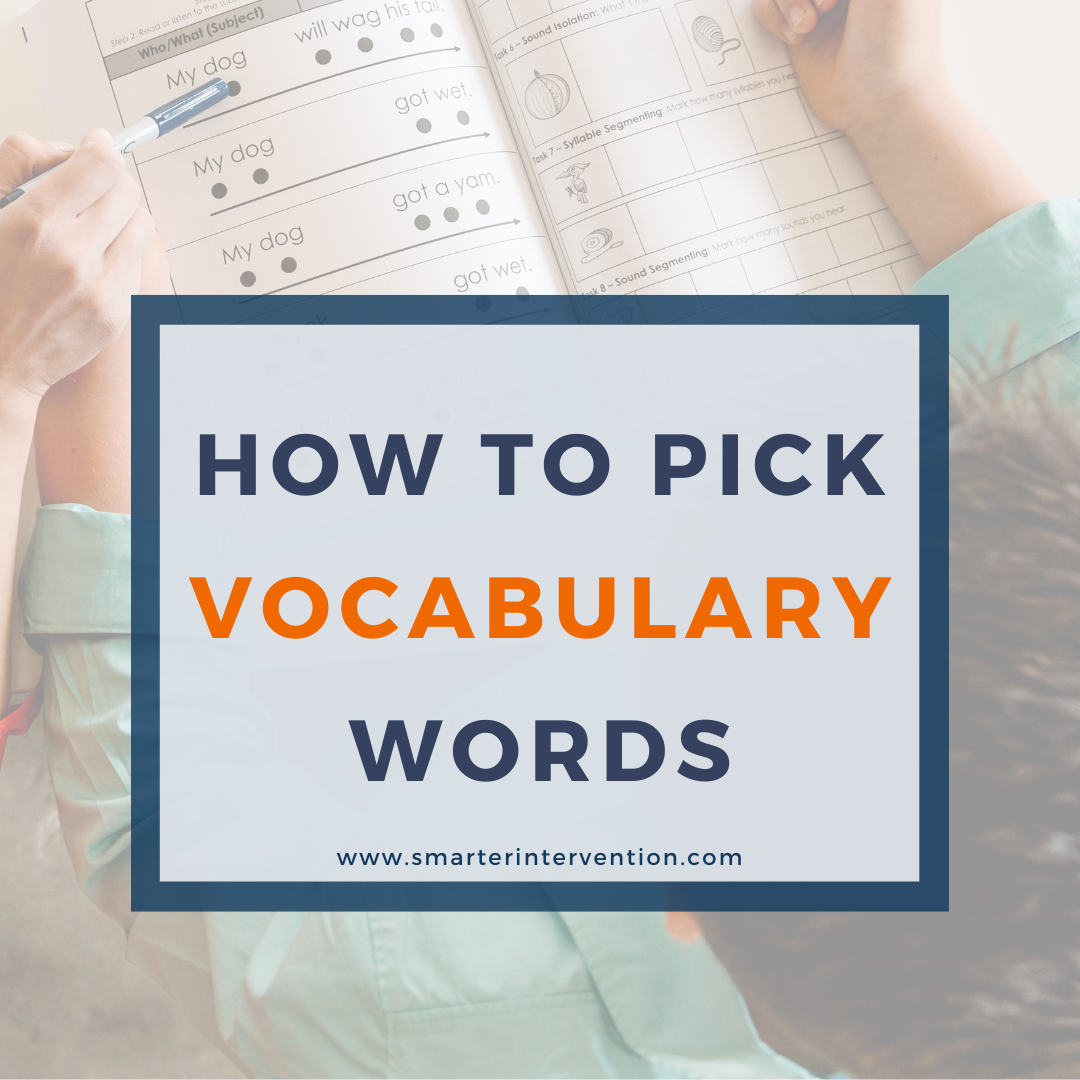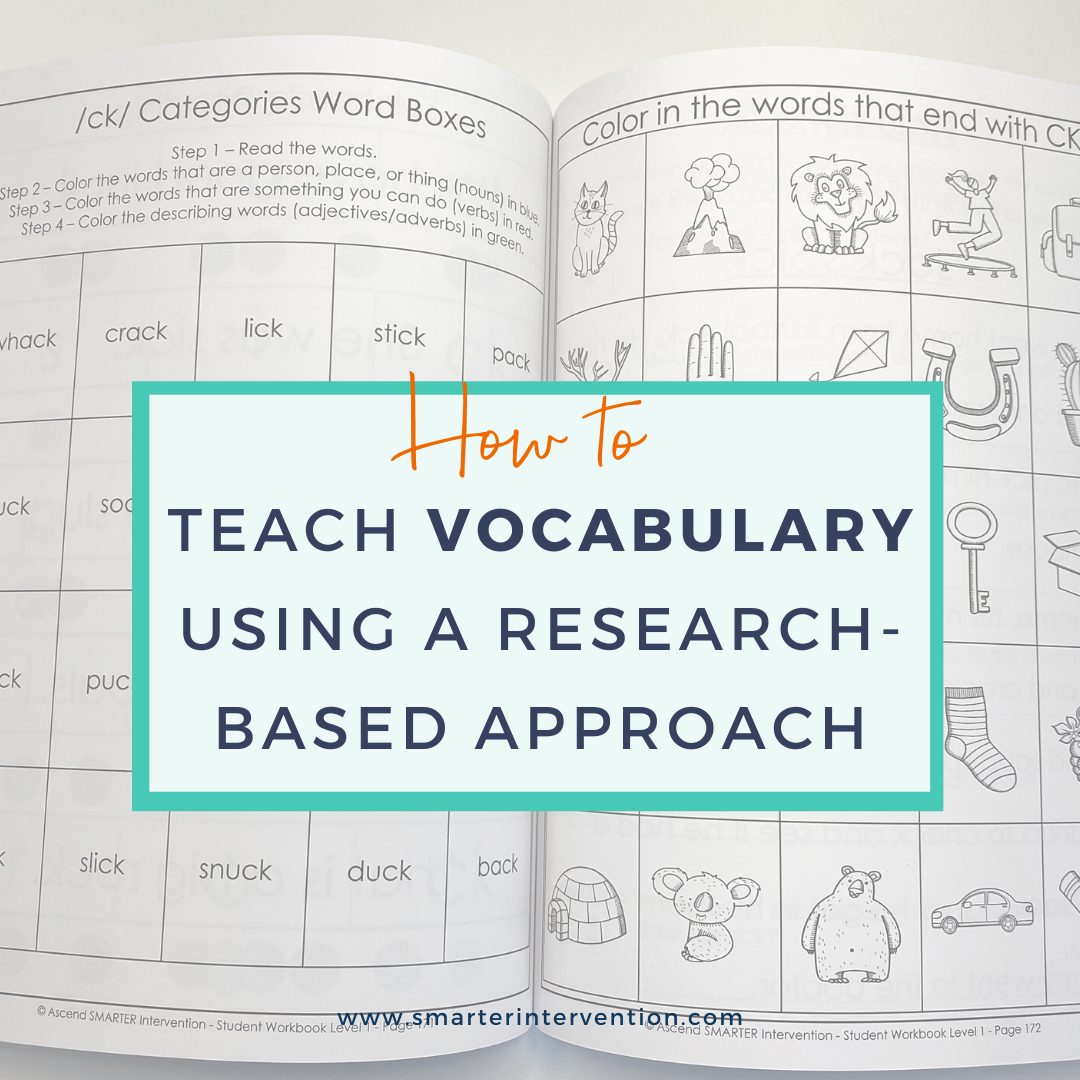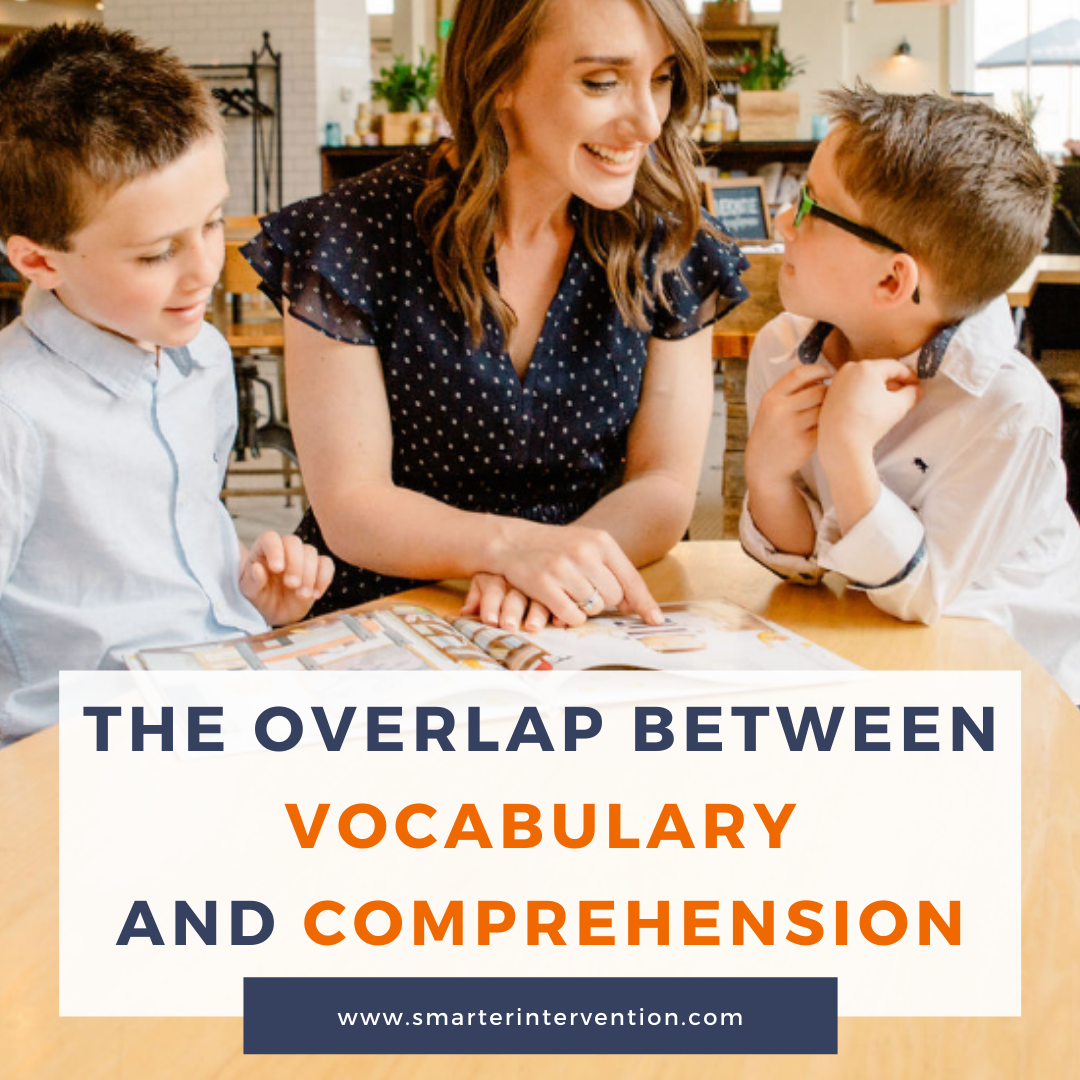Science-based literacy resources and articles
for families, educators and schools
Search by Category:
Categories
- Advocacy
- Business
- Comprehension
- Data Tracking
- Differentiation
- Dyslexia
- Evaluation and Assessment
- Executive Functioning
- Games & Activities
- Helping My Child At Home
- IEP/504 Plan
- Lesson Planning
- Math
- Online Intervention
- Organization
- Parents
- Phonics
- Phonological Awareness
- Reading Fluency
- Research
- SLP
- Spelling
- Vocabulary
- Writing
The Best Strategy to Develop Vocabulary Knowledge
When it comes to vocabulary instruction, rote memorization of definitions has been the go-to strategy for students for a looooooong time. While this flashcard strategy can be an effective way to learn new words, it ultimately isn't effective for long-term retention. We’ve found a strategy that can easily be incorporated into your existing literacy lessons to support vocabulary development and comprehension. Curious? Click here to learn more.
How to Pick Vocabulary Words for Your Literacy Lessons
Raise your hand if vocabulary instruction has ever scared you. (We immediately raise our hands).
How do you teach it? Which words are we supposed to use? We had these questions, too. That is until we cracked the code and figured out how to easily incorporate vocabulary instruction into our literacy lessons across grade-levels. Click through to read more!
How to Fit Vocabulary in to Your Reading & Writing Lessons
Vocabulary instruction is necessary in order for phonics to matter. Keep reading to learn how you can easily & effectively incorporate vocabulary instruction into your reading & writing lessons.
How to Teach Vocabulary using a Research-Based Approach
When I started out in reading intervention - the thought of teaching vocabulary terrified me. Maybe it was because I wasn’t sure how much my students were actually struggling with it, I wasn’t sure how to assess it, I wasn’t sure how much of it fell on me to teach, maybe it was because I thought it was just morphology, or - maybe it was because I still remember how much I hated memorizing hundreds of definitions & word origins from when I was in school.
Whatever it was - I dreaded vocabulary because it felt overwhelming and the way I was taught when I was a student (find the part of speech, word origin, and definition) never seemed to be helpful - just tedious.
That is until I learned what vocabulary instruction should actually look like and why it is so important. Today - we are going to break that down.
The Overlap Between Vocabulary and Comprehension
So often, my students struggle with the main idea and key details because they are either WAY too broad, WAY too specific, or start talking in the longest run-on sentence trying to tell me every last detail about the passage they can squeeze in.
Recently, I have found that it has actually been a vocabulary activity that has allowed me to explicitly teach them how the ideas in the stories and passages we read come together to form the main idea and key details.
Vocabulary is More than Morphology
Don’t get us wrong - we fully believe that morphology is important! In our program, we have two full levels devoted to morphology.
We need to recognize, however, that morphology is only a very small piece of vocabulary and we need to be explicitly teaching vocabulary with ALL of our students, regardless of age or level. Read on to learn exactly what vocabulary instruction needs to include to support vocabulary development.
How to Teach Vocabulary Explicitly
Whenever we talk about literacy, we always come back to this literacy processing triangle. Now, many reading intervention programs do a nice job of connecting the bottom points of the triangle by working on the orthography to phonology connection. Much less frequently, we see the third point, semantics, tied into a program
Lesson Planning - Morphology Based Lessons - Intervention Tip of the Week
Master morphology in reading intervention! Discover effective strategies to integrate morphological instruction seamlessly into your lessons. Learn from our proven methods and watch the video for intervention insights!
5 Core Components of Reading - Vocabulary
This month we’ve been talking all about the 5 Core Components of Literacy. Today, we wanted to jump into an extremely important and yet often overlooked part of literacy instruction.
4 Ways to Build Your Child's Language Skills at Home
Students with expressive/receptive language disorders face a number of challenges in school. It is estimated that 1 in 20 students have some type of language disorder. These students are often working overtime to cope with their challenges and their struggle can go undetected or be misunderstood.
Language skills are at the heart of early literacy development and a key component to your child’s success in school.
3 Ways to Build Receptive & Expressive Language Skills in the Classroom
Discover how to nurture receptive and expressive language skills in students with language disorders. Learn effective strategies for the classroom and identify red flags. Explore resources for targeted literacy instruction.












